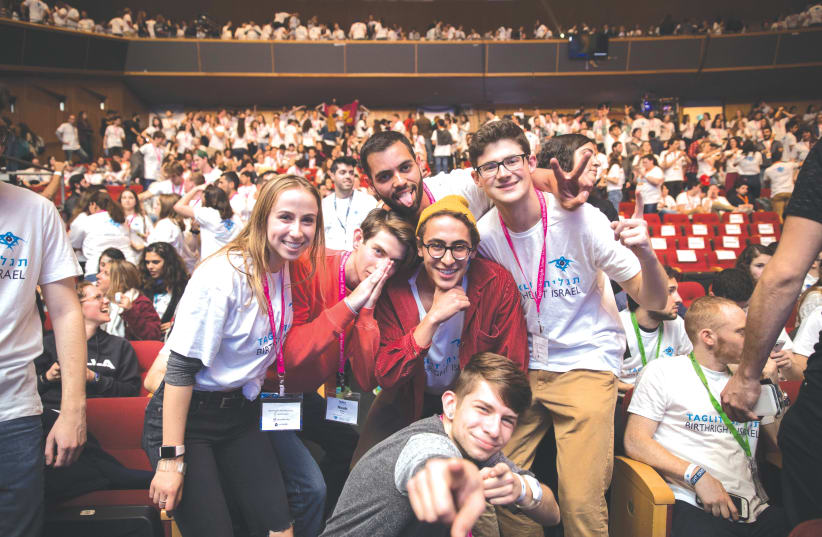My parents were proud Jewish activists, dad in the Conservative movement and mom in the Pioneer Women (today Naamat). They provided us children with the best Jewish education available in the city for Conservative Jews, from synagogue nursery school to afternoon and weekend Hebrew schools till high school graduation. We went to Hebrew-speaking summer camps.
Being the oldest, I was the first to visit Israel. This fateful encounter happened in 1968, in the summer of my freshman year. I’ve written at length about this transforming life experience in my novel. In just a few words, I’d say I felt the first direct, physical contact with the earth where my ancestors walked like a jolt of a mild electric shock, cognitively speaking.
It took several years for me to develop a working knowledge of Jewish history, working as in practicing. The understanding that evolved naturally culminated in the current period of Jewish history, what I’ll call the Zionist Era: from the 19th century BILU (an acronym of the early socialist Zionist agricultural-based aliyah movement) through the British Mandate and the War of Independence to Jewish sovereignty.
Being born in 1949 during the second year of Israel’s independence, meant that I was born in the first generation in 2,000 years of Jewish history in which a Jewish state existed. In other words, this was the first generation in a world with two major Jewish communities, one of which that is a sovereign state.
The idea emerged of a new Jewish categorical imperative: Any Jew born in the Diaspora after the creation of the Jewish state must answer the question “Who am I?” with regard to Jewish identity. This is a moral imperative.
The morality of it all is the obligation one has to be true to oneself. There is a logic to discovering your destiny, beginning with posing the question “Who am I?” The answer begins to emerge with the onset of teenage angst. This pondering tends to come to a head as college graduation approaches and the identity question shifts to “What am I going to do with my life?”
My thesis is that any Jew born after 1948 is faced with an existential question of identity: Do I accept my birth identity as given, or do I choose my own access to Jewish history?
Of course, American Jews can live rewarding Jewish lives as minority communities in the Diaspora. Half the world’s Jews do. But only the Jews who live in Israel know what it feels like to be part of the majority population. It took 2,000 years and we’re making up for lost time, but the work is not nearly done.
ANOTHER GENERATION of young Jews is standing at the crossroads. The choice is between being an American Jew by default, with the accent on American, or choosing to be part of the ongoing experiment of building the Jewish homeland, with all the challenges involved in mastering the language and making a living, perhaps even serving in the army. In trendier terms, with such a mixed background, you are called upon to make the choice: Who do I identify as?
My parents were prime examples of the conflicts involved in making such a weighty, life-altering decision. My dad did not favor my moving to Israel and making aliyah. Instead, he wanted me to go to attend The Jewish Theological Seminary, become a Conservative rabbi and save the Jews of America. He was a diasporist, synagogue president, and sat on the board of The United Synagogue.
Mom, on the other hand, following her mother and mother-in-law’s example, was a dynamic Pioneer Woman (today Na’amat), raised money for Israel and proudly encouraged my aliyah. At the time of her death, she was pursuing her MA in speech therapy and studying Hebrew, with the goal of making aliyah and living near her grandchildren.
As always, Zionism means livnot ulehibanot: to participate in building of the Jewish state and, by so doing, be personally rebuilt. The rebuilding is creating a new identity; make the conversion from Diaspora Jew to Israeli Jew.
I am an American Israeli, proud of both heritages. But I use my American passport just to enter the US to visit and my Israeli passport to go home.
The building of the state founded in 1948 goes on, physically and spiritually. The physical transformation of the country in the 50+ years that I am living here is phenomenal and ongoing. Just in Jerusalem, we are building new tunnels, new neighborhoods, new roads and bridges; we are laying more light-rail routes. The resulting traffic jams are unexpectedly taken in stride by most Israelis, who seem to view every new upgrade with pride – but still honk rudely the instant the light turns green.
Israel is a wake-up call that poses existential questions to this generation of young Diaspora Jews: Who are you? Who do you want to be? Israel doesn’t need to ask for volunteers or handouts to “save” it – our economy and military capabilities provide a safe place to continue the work of state-building.
Zionism is a call to action for idealistic young Jews to join in the ongoing building of the Jewish state. For example: join in the growing movement for separating religion and state in Israel. America wisely solved this problem some 300 years ago with a Constitution. Though there are Basic Laws, we Israelis still have some basic work to do. All Jews are invited to share in the work and benefit spiritually from doing it.
Next year in Jerusalem, plague permitting.
The writer is a former chief copy editor and editorial writer of ‘The Jerusalem Post.’ His novel, ‘The Flying Blue Meanies,’ is available on Amazon.
